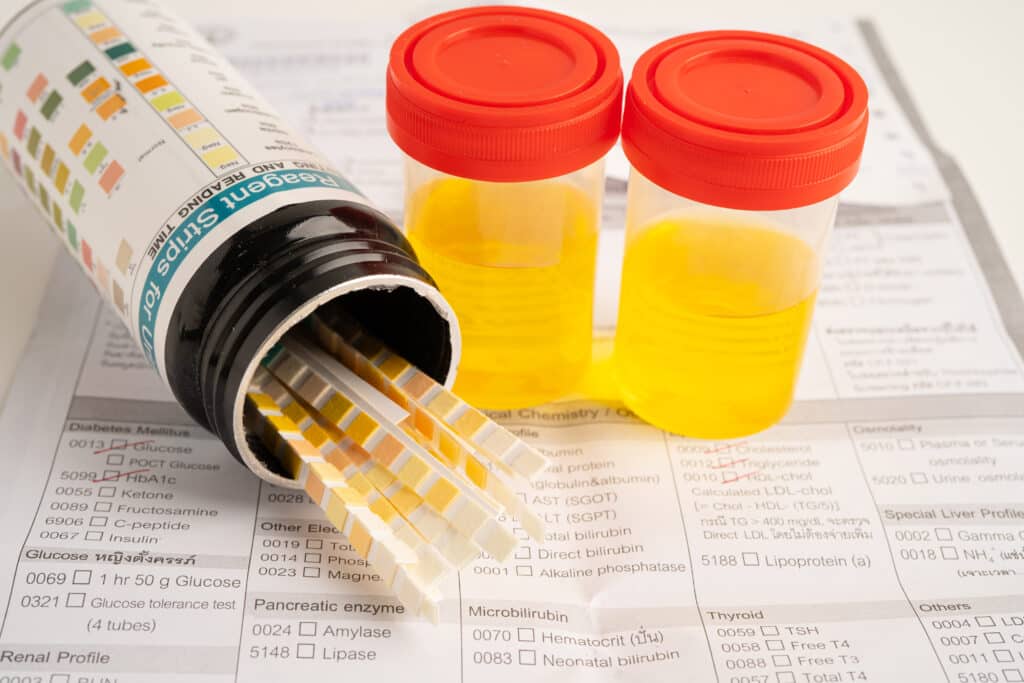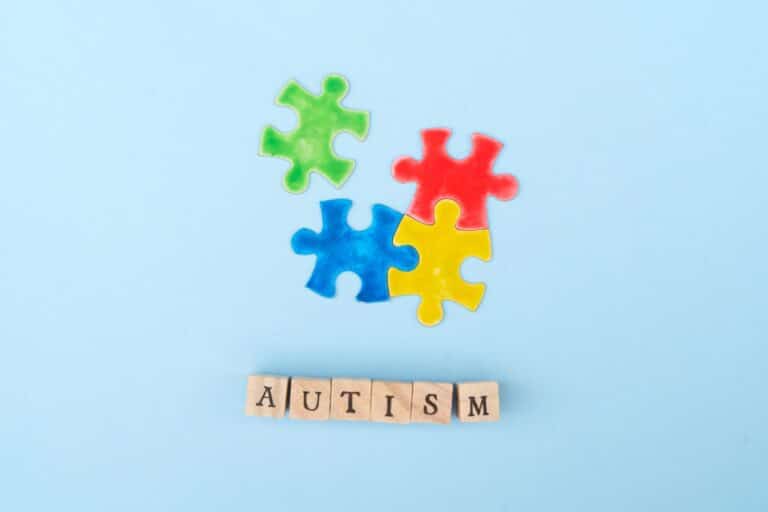How long does Suboxone stay in your system? On average, Suboxone stays in the body system of healthy individuals for 5 to 8 days or 7 to 14 days for patients with liver complications. Lab tests detect the drug and its components in hair 30 days after taking the last dose.
The period depends on the patient’s age, abuse duration, weight, last dose amount, body fat content, and metabolic speed. Keep reading to understand Suboxone abuse symptoms, effects, and treatment options.
What is Suboxone?
Doctors prescribe Suboxone for patients looking to quit opioid dependence. The FDA-approved medication contains two active compounds, naloxone and buprenorphine, which work synergistically to control withdrawal symptoms and minimize cravings. This medication is typically used to help the person struggling with opioid addiction detox from their substance of choice.
The drug’s buprenorphine acts as a weak opioid, providing euphoria to reduce withdrawal symptoms. On the other hand, naloxone minimizes the likelihood of patients developing dependence on buprenorphine.
Doctors administer Suboxone after patients start showing moderate levels of opioid withdrawal, something that happens around six hours after stopping use. The drug is available as a sublingual film or tablet.
How Long Does Suboxone Stay in Your System?
The effects of Suboxone last for approximately 24 hours in a healthy person. However, many health factors influence how the substance affects the body and metabolizes.
Suboxone has a half-life of 24 to 42 hours. This refers to when it takes half of the substance to leave the body. For most people, Suboxone will ultimately leave the body in 5 to 8 days. This means that Suboxone is detectable in drug tests during this period.

Symptoms for Suboxone Abuse
When used as prescribed, the chances of abusing Suboxone are low. However, since the drug acts like a weak opioid, some patients take it in high doses to induce the high they used to get from opioids like hydrocodone.
The patients abusing the drug snort the pills or dissolve the strips in a liquid to make an injectable. The short-term symptoms of abusing Suboxone are almost similar to those of abusing ordinary opioids
They include:
- Sedation and drowsiness
- Impaired cognition
- Muscle aches
- Involvement in high-risk behaviors
- Depression
- Slowed breathing
- Nausea and vomiting
- Negative feelings like anger, regret, and remorse
- Poor hygiene
The duration of symptoms of abuse depends on how long Suboxone stays in your system. For instance, the symptoms will likely linger for longer for patients with low metabolic speed and impaired liver function.
Long-term Effects
When abused over a long time, Suboxone can profoundly affect the patient’s mental, physical, and social well-being. For instance, the drug can trigger unpredictable mood swings since it alters brain chemistry. It is why long-term users exhibit violent behavior or even end up with depression.
Other long-term effects of abusing Suboxone include:
- Insomnia
Like full opioid agonists, long-term Suboxone abuse alters the brain’s sleep cycle, leading to insomnia. Affected patients might find it hard to sleep at night or experience disturbed sleep patterns like waking up several times a night or feeling sleepy during the day. In addition to insomnia, long-term abuse of Suboxone can also increase one’s likelihood of sleep apnea.
- Respiratory Depression
Suboxone taken in high amounts depresses the respiratory system the same way codeine, oxymorphine, hydrocodone, and fentanyl do. Patients with respiratory depression breathe too slowly, leading to reduced oxygen levels in the blood. In return, the patients experience weakness, confusion, first heart rate, muscle spasms, and lightheadedness.
- Brain Damage
Once addicted to Suboxone, the brain will no longer work optimally. The addicted patients experience difficulties remembering things, controlling emotions, and solving problems. Furthermore, patients with Suboxone brain damage experience an inability to plan things, have slowed reaction times, and find it hard to cope with depression and anxiety.
- Difficulty Concentrating
Since Suboxone is a partial opioid, abusing it impairs one’s concentration just like other opioids do. Primarily, the loss of concentration results from inadequate sleep and altered brain damage. Patients with low concentration are likely to experience reduced productivity at the workplace and an inability to make decisions. Furthermore, the patients commit avoidable mistakes, lack motivation, and forget easily.
Suboxone Addiction
The Drug Enforcement Administration classifies Suboxone as a schedule III drug. Substances under the category have a low to moderate risk of addiction, meaning that patients using Suboxone could end up with a new addiction.
The risk of addiction is higher in individuals who take large doses than prescribed. Like any form of addiction, patients with Suboxone addiction present with several symptoms with, the most common being:
- Using Suboxone even after the end of treatment
- An urge to take higher doses
- Intense craving to have your next Suboxone doses
- Giving up hobbies and interests as a result of Suboxone use
- Developing an increased tolerance
- Experiencing withdrawal symptoms
Seeking Treatment for Suboxone Addiction and Abuse
Suboxone’s addiction and abuse are treatable. The treatment is done in rehabilitation centers as an inpatient, outpatient, or partial hospitalization procedure. Mental and behavioral health professionals are available to help patients choose their ideal option. Typically, the treatment for Suboxone addiction and abuse is similar to that clinicians use to treat alcohol and drug abuse. It entails:
Medical Assessment
Suboxone’s addiction treatment starts with a comprehensive assessment of the patient. Clinicians use one-on-one interviews, lab tests, history-taking, and self-assessment reports to collect all information. This information is gathered to help improve treatment outcomes for the patient.
With the assessment, the clinicians determine the patient’s readiness for treatment. They also identify underlying conditions that need to be treated alongside rehabilitation. Furthermore, the evaluation helps determine the duration of addiction.
Medical Detoxification
After the assessment, clinicians help flush the drug and its components out of the patient’s system. Detoxification is done under medical supervision since it can trigger severe withdrawal symptoms that the patient cannot manage independently.
The withdrawal symptoms include body aches, anxiety, depression, fever, nausea, sweating, and irritability. Depending on the duration of Suboxone addiction, underlying medical conditions, and method of abuse, the withdrawal symptoms can last for one week or for as long as one month.
Usually, detoxification is the stage where the answer to how long Suboxone stays in your system comes in handy. It helps clinicians determine the duration it takes the body to flush out Suboxone and its compounds.
Rehabilitation
After successful detoxification, the clinicians put the patient under rehabilitation to help them adapt to a new life without addiction. In this treatment stage, the clinicians use a combination of interventions like individual therapy, family therapy, art therapy, and group therapy to help the patient recover fully. The clinicians will help choose the right therapy for the patients under treatment.
Get Suboxone Addiction Treatment at SoCal Rehab Center
The South California Rehab Center offers first-class addiction treatment for alcohol, Xanax, opioids, marijuana, and other substances. We use traditional and holistic methods like yoga & fitness, group therapy, guided meditation, psychotherapy, creative arts therapy, and family therapy to help patients recover quickly.
What is more? We accept all major insurances, including Cigna, Aetna, First Health, ComPsych, and Humana. Contact us to learn more about how we can help you recover from Suboxone addiction.






